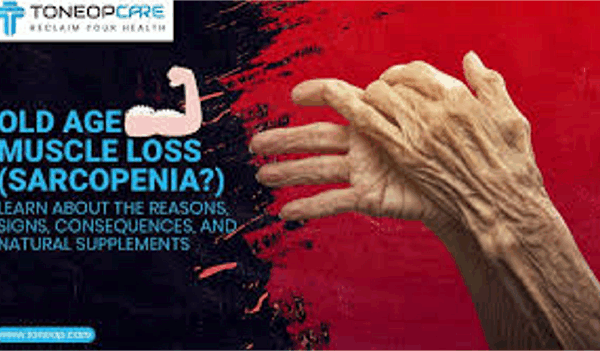매일 한 잔, 아니면 주말에만? 금주 기간이 중요한 이유는 다음과 같습니다.
최근 몇 년 동안 음주자들은 질병에서 위험한 행동 및 열악한 웰빙에 이르기까지 음주가 건강에 미치는 위험에 대해 더 많이 인식하게 되었습니다. 막 끝난 Dry July, Febfast 및 Hello Sunday Morning(사람들이 일정 기간 동안 술을 자발적으로 금하는 행사)과 같은 행사가 인기를 얻고 있으며 과음과 관련된 위험에 대한 인식을 높이고 있습니다.
많은 사람들이 주말에 여전히 술을 즐기면서 금주일을 주간 일과에 통합함으로써 이러한 금주 기간을 일년 내내 연장합니다.
그러나 주말에만 마시는 것과 주중에 같은 양을 마시는 것이 건강에 어떤 영향을 미칠까요?
얼마나 많은가요?
호주 알코올 지침과 세계보건기구(WHO)에서는 알코올 사용에 안전한 수준이 없다고 명시하고 있습니다. 술을 마시는 성인의 경우 가이드라인은 한 번에 최대 4잔 또는 일주일에 10잔을 권장합니다. (18세 미만 및 임신 중에는 무알코올 접근 방식이 권장됩니다.)
어떤 사람들에게는 이것이 별 것 아닌 것처럼 들릴 수도 있습니다. 호주인 4명 중 1명은 한 세션에서 4잔 이하의 권장량을 초과하며, 남성이 여성보다 그렇게 할 가능성이 더 높습니다. 이 양은 알코올 중독, 뇌 세포 손상 및 폭력, 사고 및 보호되지 않은 성관계로 이어지는 위험한 행동에 참여할 가능성이 높아질 수 있습니다.
하지만 매일 밤 와인은 어떻습니까?
호주 알코올 지침을 준수하고 적당히 마시는 것(일주일 동안 매일 한두 잔)도 위험할 수 있습니다. 적당한 음주의 가능한 건강 결과에는 암, 간 및 심장 질환의 위험 증가, 알코올 사용 장애, 불안 및 우울증 증상의 증가가 포함됩니다.
모든 사람은 연령, 성별, 체형 및 크기에 따라 다른 속도로 알코올을 처리합니다. 그러나 대부분의 사람들은 술을 마신 후 12시간이 지나도 여전히 혈액에서 알코올을 검출할 수 있습니다. 신체가 알코올의 독소를 지속적으로 처리하면 신체적, 정신적 건강 위험과 관련된 만성 염증 상태로 이어질 수 있습니다.
알코올이 뇌에 미치는 영향과 관련된 몇 가지 생물학적 메커니즘이 있습니다. 알코올은 뇌 건강과 관련이 있는 장내 미생물 군집에 있는 박테리아의 미세한 균형을 파괴합니다.
알코올 소비는 우리의 두려움 반응을 포함하여 감정을 처리하고 조절하는 데 중요한 뇌의 일부인 편도체의 기능을 방해합니다. 이것이 손상되면 우리는 두려움에 덜 주의를 기울이고 위험을 감수하는 행동을 할 가능성이 높아집니다.
언어 생산 및 이해와 관련된 영역도 알코올의 영향을 받아 너무 많이 발음이 어눌해지고 다른 사람의 의사소통을 이해할 수 없게 됩니다. 술을 마시면 전두엽의 뇌 기능이 둔해져서 어떤 사람들에게는 성격의 변화로 이어질 수 있습니다. 알코올이 해마에 미치는 영향으로 인해 정전이 발생할 수 있습니다.
그럼 술은 안마시나?
절주는 최적의 건강을 위한 해답일 수 있지만, 우리가 즐기는 것을 스스로 박탈하는 것은 또한 부정적인 정신 건강으로 이어질 수 있으며 미래에 폭식할 가능성이 더 높아질 수 있습니다. 이것이 건강 위험의 균형을 맞추는 동시에 사회 활동을 즐길 수 있는 기회를 제공하기 위해 술 없는 날이 인기를 얻고 있는 이유입니다.
일상에 술을 마시지 않는 날을 포함하면 신체가 알코올의 독성 특성으로부터 스스로 수분을 보충하고 해독하고 회복할 수 있는 기회를 얻을 수 있습니다. 해독은 간 기능과 수면의 질을 개선하고, 수분 보유량을 줄이고 체중 조절을 쉽게 하며, 생각을 명료하게 하고, 기억력을 향상시키며, 에너지를 증가시키고, 피부를 맑게 하고, 면역 체계를 강화하고, 불안과 우울증의 증상을 감소시킵니다.
술을 마시지 않는 날은 과일과 채소를 더 많이 먹고, 물을 더 많이 마시고, 수면 패턴을 개선하고, 일찍 일어나 운동하는 것과 같은 다른 건강한 행동을 장려함으로써 도미노 효과를 일으킬 수 있습니다.
더 나은 음주 균형을 위한 6가지 팁
일상에 더 많은 금주일을 포함시키려는 경우 다음을 시도할 수 있습니다.
- 현실적인 목표를 세운다. 술을 마시지 않는 날이 몇 일이고 며칠인지 명확히 하고 달력에 표시하고 휴대폰에 미리 알림을 설정하십시오.
2.금주 활동을 계획하고 대체 알코올을 찾으십시오. 음주를 포함하지 않는 좋아하는 모든 활동을 나열하고 평소에 술을 마시는 시간에 할 계획을 세우십시오. - 알코올을 “보이지 않게” 만드십시오. 맥주는 냉장고에 보관하지 않고 와인과 주류는 닫힌 찬장에 보관하면 마음의 최전선에서 제외됩니다.
- 파트너 및/또는 가족의 지원과 격려를 구하십시오.
- 명상과 마음 챙김과 같은 스트레스 관리 기술을 통합하십시오. 술을 마시지 않는 날에 기분이 어떤지 관찰하고 신체적, 정신적 웰빙의 긍정적인 변화를 기록하십시오.
- 진행 상황을 반영합니다. 매일 술을 마시지 않는 날을 인정하고 기념하십시오. 목표 달성을 위해 무알코올 보상을 허용하십시오.
마지막으로 모든 사람을 아는 것이 중요합니다. - 때때로 미끄러집니다. 계획된 금주일에 술을 마시고 포기하지 않는다면 자기 용서를 실천하십시오.
- Megan Lee는 심리학 선임 연구원이고 Emily Roberts는 Bond University의 심리학 박사 과정 후보자입니다. 이 작품은 The Conversation에 처음 등장했습니다.
- 14시간 전에 게시됨
- A drink each day or just on the weekends? Here’s why alcohol-free days are important
- The Conversation
- /
- By Megan Lee and Emily Roberts
- Posted 14h ago14 hours ago
- Help keep family & friends informed by sharing this article
- abc.net.au/news/why-alcohol-free-days-are-important/102681284
- Link copiedCOPY LINKSHARE
- In recent years, drinkers have become more aware of the health dangers of drinking alcohol, from disease to risky behaviour and poorer wellbeing. Events like the just-finished Dry July, Febfast and Hello Sunday Morning — when people voluntarily abstain from alcohol for periods of time — are growing in popularity and raise awareness about the risks involved in overindulgence.
- Many people extend these alcohol-free periods throughout the year by incorporating alcohol-free days into their weekly routines, while still enjoying a drink on the weekends.
- But does drinking the same amount spread over the week versus just on the weekends, make any difference health-wise?
- How much is too much?
- Australian alcohol guidelines and the World Health Organization state there is no safe level of alcohol use. For adults who do drink, the guidelines recommend a maximum of four drinks in one sitting or ten in a week. (A zero-alcohol approach is recommended for under-18s and during pregnancy.)
- For some, this may not sound like much at all. One in four Australians exceed the recommendation of no more than four drinks in one session, with men more likely to do so than women. This amount can result in alcohol poisoning, damage to brain cells and a higher likelihood of engaging in risky behaviours leading to violence, accidents and unprotected sex.
- But what about a wine each night?
- Even abiding by the Australian alcohol guidelines and drinking in moderation — one or two drinks each day over the week — can be risky. Possible health outcomes of moderated drinking include increased risk of cancer, liver and heart disease, alcohol use disorder, and an increase in the symptoms of anxiety and depression.
- Is there a safe limit of alcohol you can drink? New guidelines from Canada say there’s not
- More than two drinks a week is risky, and no amount of alcohol is safe, a major Canadian study concludes.
- Read more
- Everyone processes alcohol at a different rate depending on age, gender, body shape and size. However, for most people, alcohol can still be detected in the blood 12 hours after consumption. When the body is constantly processing the toxins in alcohol, it can lead to a chronic state of inflammation which is linked to physical and mental health risks.
- There are several biological mechanisms associated with alcohol’s impact on the brain. Alcohol destroys the fine balance of the bacteria in the gut microbiome, which has been linked to brain health.
- Alcohol consumption disrupts the function of the amygdala — a part of the brain important for processing and regulating emotion, including our fear response. When this is impaired we are less likely to pay attention to our fears and more likely to engage in risk-taking behaviour.
- Areas involved in language production and comprehension are also affected by alcohol, with too much leading to slurred speech and the inability to comprehend communication from others. When drinking dulls frontal lobe brain function, it can lead to changes in personality for some people. Blackouts can occur from the influence of alcohol on the hippocampus.
- So, no drinking then?
- While sobriety may be the answer for optimal health, depriving ourselves of the things we enjoy can also lead to negative mental health and a higher likelihood we will binge in the future. This is why alcohol-free days are becoming so popular, to balance health risks while also giving us the chance to enjoy social activities.
- Alcohol was my security blanket. This is what happened when I gave up
- I started drinking at 16 and grew up in a family where social drinking was a regular practice. So, it was a challenge when doctors told me I had to give it up.
- Read more
- Including alcohol-free days in your routine can give the body a chance to rehydrate, detoxify and repair itself from the toxic properties of alcohol. Detoxification can lead to improved liver function and sleep quality, less water retention and easier weight control, clearer thinking, improved memory, more energy, clearer skin, a strengthened immune system and decrease symptoms of anxiety and depression.
- Alcohol-free days can also create a domino effect by encouraging other healthy behaviours like eating more fruits and vegetables, drinking more water, improved sleep patterns and getting up early to exercise.
- Six tips for better drinking balance
- If you’re looking to incorporate more alcohol-free days into your routine you could try to
- 1.Set realistic goals. Clarify how many and what days will be your alcohol-free days, mark them on a calendar and set reminders on your phone.
- 2.Plan alcohol-free activities and find alcohol alternatives. List all the activities you like that do not include drinking and plan to do these at the times of the day you would normally drink.
- 3.Make alcohol “invisible”. Keeping beer out of the fridge and wine and spirits in closed cupboards keeps them from the forefront of your mind.
- 4.Seek support and encouragement from your partner and/or family.
- 5.Incorporate stress management techniques like meditation and mindfulness. Observe how you feel on alcohol-free days and note positive changes in your physical and mental wellbeing.
- 6.Reflect on your progress. Acknowledge and celebrate each alcohol-free day. Allow yourself non-alcoholic rewards for achieving your goals.
- Finally, it’s important to know everyone slips up now and then. Practice self-forgiveness if you do have a drink on a planned alcohol-free day and don’t give up.
- Megan Lee is a Senior Teaching Fellow in Psychology and Emily Roberts is a PhD Candidate in Psychology at Bond University. This piece first appeared on The Conversation.
- Posted 14h ago










